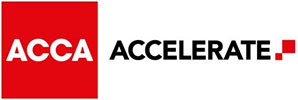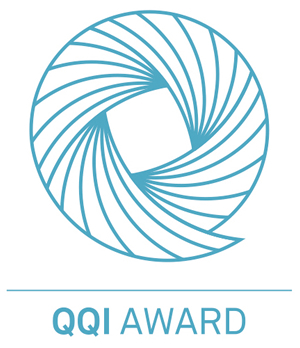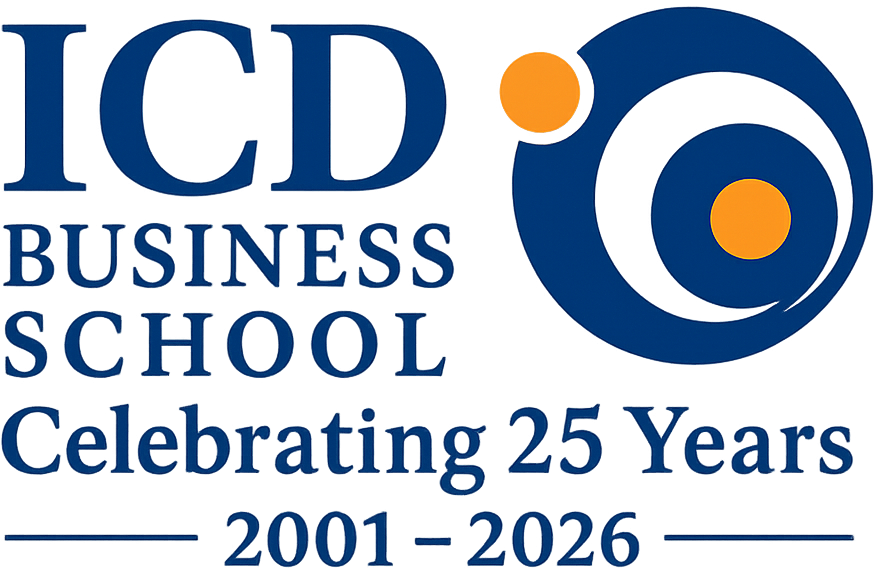BA (Honours) Accounting and Finance
BAAF
NFQ LEVEL
Level 8 (Honours Degree)
COURSE LENGTH
3 Years
ENTRY DATES
September/February annually

Description
This course is designed for students seeking a high level career in finance, accountancy or business management. Graduates are employed in a variety of managerial careers. The course focuses on giving practical and theoretical skills of real use to financial managers.
Accreditation
 ICD Business School in association with ACCA is proud to be part of the ACCA Accelerate programme.
Graduates are exempt from a significant number of the examinations of professional bodies. In particular Graduates of the three year programme are exempt from Papers F1-F9 of the Association of Certified Chartered Accountants ACCA.
ICD Business School in association with ACCA is proud to be part of the ACCA Accelerate programme.
Graduates are exempt from a significant number of the examinations of professional bodies. In particular Graduates of the three year programme are exempt from Papers F1-F9 of the Association of Certified Chartered Accountants ACCA.
Validating Body
 QQI
QQI
QQI (Quality and Qualifications Ireland) is an independent State agency responsible for promoting quality and accountability in education and training services in Ireland. It was established in 2012 by the Qualifications and Quality Assurance (Education and Training) Act 2012.
This is a 180 ECTS Credit Programme
It is anticipated that most graduates will enter related employment following completion of the programme. However, candidates may also choose, either directly or at a later stage to advance their studies at postgraduate level nationally or internationally. Some Master programmes ICD students can apply for after completion of the BA (Honours) in Accounting and Finance programme:
| Progression destinations | |
|---|---|
| Programme name,Provider | Details |
| MA in Accounting and Finance – ICD Business School, Dublin | Student completed the BA (Honours) in Accounting and Finance programme with a minimum 2.1 Honour |
| MA in Finance – Trinity College Dublin | Student completed the BA (Honours) in Accounting and Finance programme with a minimum 2.1 Honour |
| MA in Finance – DIT Dublin | Student completed the BA (Honours) in Accounting and Finance programme with a minimum 2.1 Honour |
| MBS Finance – UCD | Student completed the BA (Honours) in Accounting and Finance programme with a minimum 2.1 Honour |
| MBS – DCU | Student completed the BA (Honours) in Accounting and Finance programme with a minimum 2.1 Honour |
Minimum Entry Requirements for General Learning:
CAO: Selection of candidates is governed by the rules and regulations of the CAO (Central Applications Office) for the particular year of application.
| Entry requirements for admission to the BA (Hons) in Accounting & Finance | The BA (Honours) in Accounting & Finance is an ab initio programme that that will accept any learner that meets the college’s standard entry and RPL requirements.
– Candidates applying with Leaving Certificate results prior to 2017 should have 2C3’s at Honours Level and 4D3’s at Pass Level to include English & Mathematics – Candidates applying with Leaving Certificate results from 2017 onwards must have a minimum of 2 subjects at grade H5 (or higher) and 4 subjects at grade O6 (or higher) in the Leaving Certificate and must include English and Maths. – Mature learners (over 23 years old) may also apply |
|---|
EU/EFTA Applicants:
For EU/EFTA applicants, ICD refers to the ‘Agreed entry requirements for EU/EFTA Applicants’ published by THEA, IUA, the RCSI and the CAO. For more information please email info@icd.ie
Non-EU Applicants:
All applicants for ICD’s programmes who present with non-EU school-leaving qualifications apply directly to the college by emailing info@icd.ie
Language Requirements:
All prospective learners who do not qualify by the CAO route, and where English is a second language, must have an IELTS minimum score of 6.0. Equivalent English Language tests (Cambridge, TOEFL, Pearson and QQI’s TIE*) are also considered. We welcome learners of all nationalities and language backgrounds. To begin the application process, please email info@icd.ie
Mature Student Applicants:
ICD welcomes applications from mature students but looks for reasonable evidence that they would be able to achieve success on a demanding, full-time honours degree programme. A mature student is defined as any person who has reached the age of 23 years on the first day of January in the year in which she/he is admitted to a course leading to a QQI award. The college may admit candidates for individual stages (outline above) on the basis of demonstrated RPL/APL/APEL. Recognition of Prior Learning and experience may be granted to applicants to allow them to enter the programme. To begin this process, please email info@icd.ie
Advanced Entry:
To make an advanced entry application, students must be completing, or have successfully completed, a minimum of one year of study in a cognate discipline, at an appropriate NFQ level. To begin the process of applying for advanced entry, please email info@icd.ie
| BA (Hons) in Accounting and Finance | |
|---|---|
| Stage 1 | Learners must meet ‘minimum requirements for general learning’ (specified in programme manual and published on ICD’s website).
ICD welcomes applications for advanced entry on the basis of prior and experiential learning (RPEL). |
| Stage 2 | Candidates applying for entry onto the programme at stage 2 must hold a QQI Level 6 in Business or Accounting & Finance with a Grade Point Average (GPA) of 2.65 or higher.
Equivalent qualifications that are recognised on the National Framework of Qualifications for Ireland at Level 6 will also be accepted. ICD welcomes applications for advanced entry on the basis of prior and experiential learning (RPEL). |
| Award | Candidates applying for entry onto Year 3 must hold a minimum of an Ordinary Bachelor Degree in Accounting & Finance at Level 7 on the National Framework of Qualifications for Ireland. Equivalent qualifications that are recognised on the National Framework of Qualifications are also acceptable.
ICD welcomes applications for advanced entry on the basis of prior and experiential learning (RPEL). |
Graduates are exempt from a significant number of the examinations of professional bodies. In particular Graduates of the three year programme are exempt from Papers F1-F9 of the Association of Certified Chartered Accountants ACCA. Substantial exemptions are available (depending on each individual results) from Chartered Accountants Ireland. (4 from 5 modules CAP1)
This course gives all-round business management skills as well as specialist knowledge of finance and accounting. Many graduates pursue careers as accountants and openings are available as management trainees in manufacturing, banks, government agencies and the public sector.
The programme is specifically aimed at learners who want to have a career in Professional accounting and or in financial services. The programme has F1-F9 exemptions from ACCA. This is the highest number of exemptions available from the ACCA, the worlds’ largest professional accountancy body (F1-F9). It is a multi-purpose award which aims to equip learners both with a comprehensive and integrated knowledge of accounting, finance and related business sub-disciplines, and a range of practical skills and competencies which will enhance their employability, ready them for work in diverse and unfamiliar contexts, furnish them with core life-long learning skills, prepare them for further study, and for a future career in finance or professional accounting. Successful completion of the BA in Accounting and Finance will provide learners with an in-depth and integrated understanding of a range of business-related sub-disciplines, and a developed capacity for the sourcing, evaluation, critical appraisal and synthesis of financial and business information, data and literature. Graduates will have experience in undertaking independent inquiry, and in developing, communicating and defending their ideas both individually and collaboratively. They will also have mastered a range of specialised and technical skills pertaining to accounting and finance, and developed key competencies in self-evaluation, teamworking, and adaptive problem-solving
Please click here to see where our programmes can take your career
For more information, please take a look at our Course Brochure: Download a Brochure Here
For more information, please take a look at our student handbook: See Student Handbook
